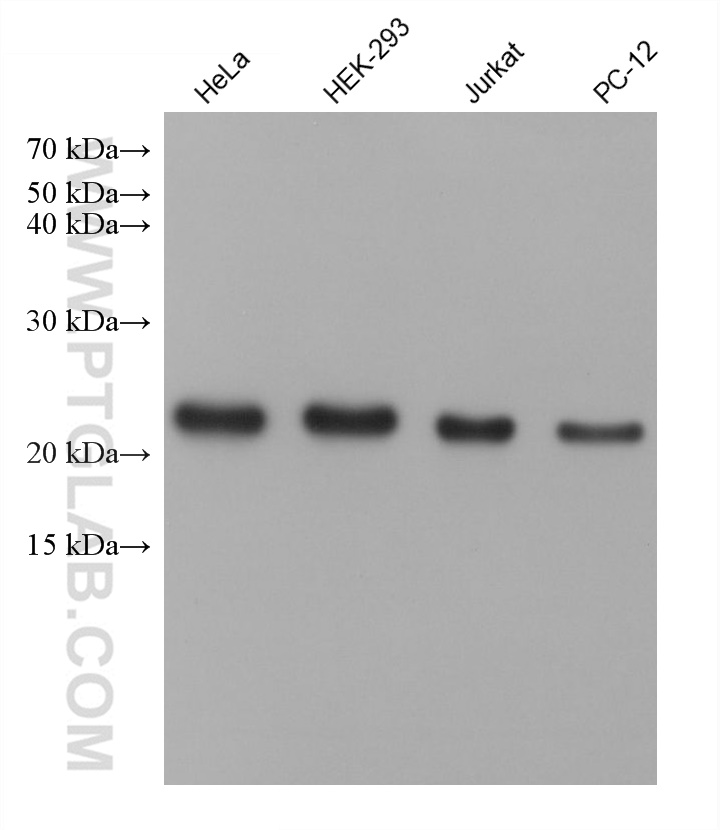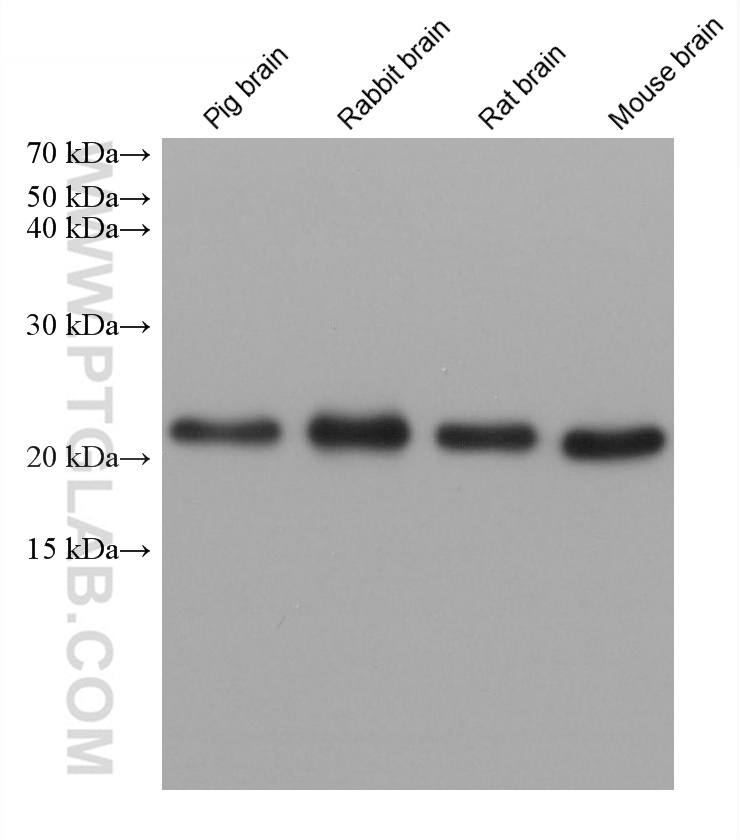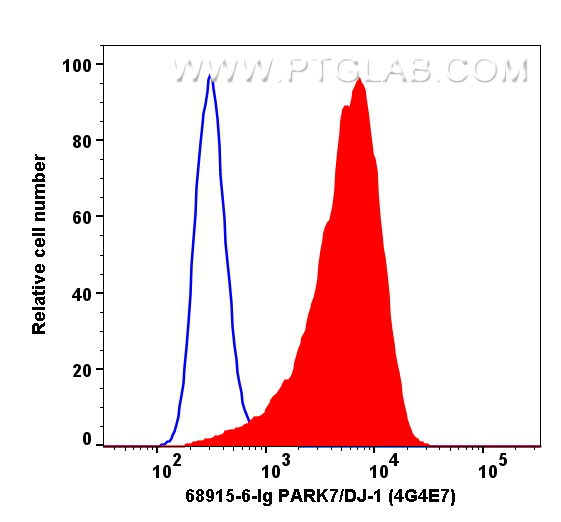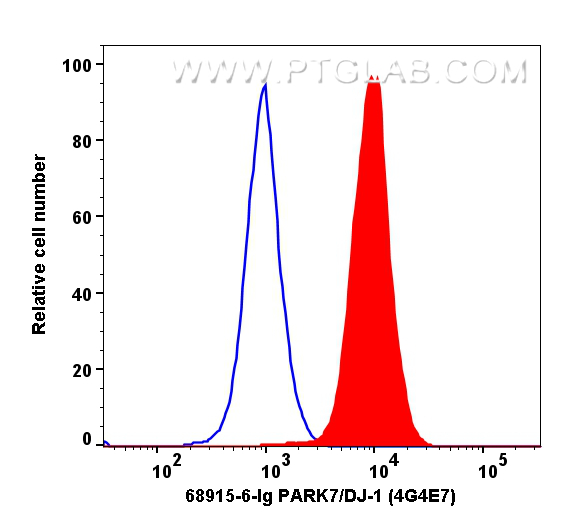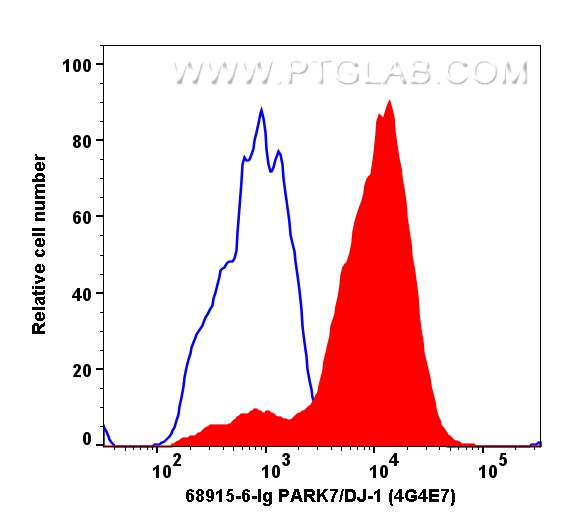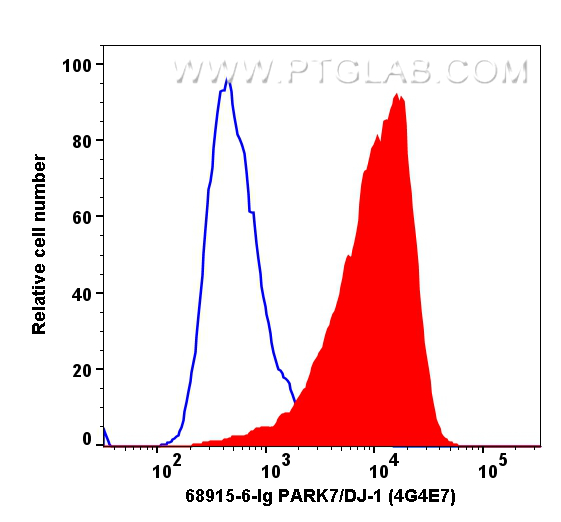验证数据展示
产品信息
68915-6-PBS targets PARK7/DJ-1 in WB, FC (Intra), Indirect ELISA applications and shows reactivity with human, mouse, rat, pig, rabbit samples.
| 经测试应用 | WB, FC (Intra), Indirect ELISA Application Description |
| 经测试反应性 | human, mouse, rat, pig, rabbit |
| 免疫原 | PARK7/DJ-1 fusion protein Ag28526 种属同源性预测 |
| 宿主/亚型 | Mouse / IgG1 |
| 抗体类别 | Monoclonal |
| 产品类型 | Antibody |
| 全称 | Parkinson disease (autosomal recessive, early onset) 7 |
| 别名 | PARK7, PARK7,DJ-1, 4G4E7, DJ 1, DJ1 |
| 计算分子量 | 189 aa, 20 kDa |
| 观测分子量 | 20-25 kDa |
| GenBank蛋白编号 | BC008188 |
| 基因名称 | PARK7 |
| Gene ID (NCBI) | 11315 |
| 偶联类型 | Unconjugated |
| 形式 | Liquid |
| 纯化方式 | Protein A purification |
| UNIPROT ID | Q99497 |
| 储存缓冲液 | PBS only , pH 7.3 |
| 储存条件 | Store at -80°C. The product is shipped with ice packs. Upon receipt, store it immediately at -80°C |
背景介绍
PARK7, also named as DJ1, belongs to the peptidase C56 family. It protects cells against oxidative stress and cell death. PARK7 plays a role in regulating expression or stability of the mitochondrial uncoupling proteins SLC25A14 and SLC25A27 in dopaminergic neurons of the substantia nigra pars compacta and attenuates the oxidative stress induced by calcium entry into the neurons via L-type channels during pacemaking. It eliminates hydrogen peroxide and protects cells against hydrogen peroxide-induced cell death. PARK7 has cell-growth promoting activity and transforming activity. It may function as a redox-sensitive chaperone. It's precursor undergoes a cleavage of a C-terminal peptide and subsequent activation of protease activity in response to oxidative stress. The amino acid replace at 166 (L → P) reduces PARK7 protein stability and leads to increased degradation. The predicted MW of this protein is 20 kDa, An additional 25 kDa band can be observed due to modification (PMID: 31767755).
